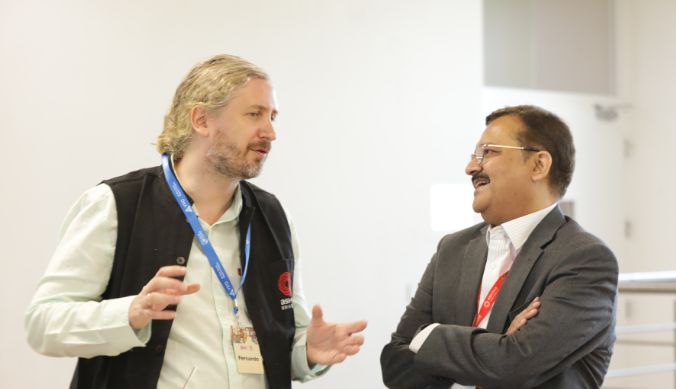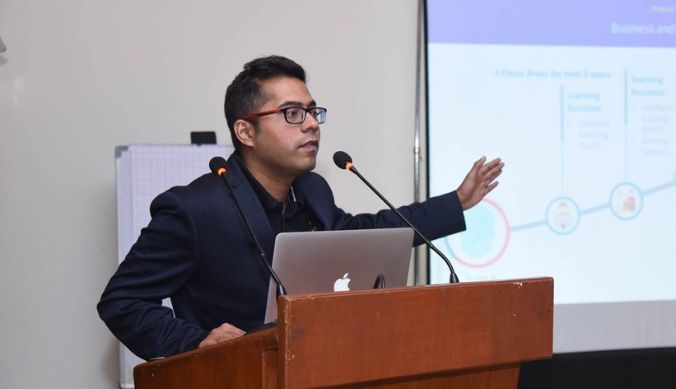Requiem for a Zoom
The pandemic-induced switch to fully online education left me with some ambivalence. True, the reason for the shift was terrible, but it also presented the opportunity to prove the viability of remote learning at scale. But this is temporary.

Office of PR & Communications
9 March, 2021 | 5 min readI am an unabashed technology nerd. As a Digital Humanist, I have spent most of my career hectoring any who cared to listen that digital affordances will transform education in the twenty-first century. There have been few opportunities in my career with the word ‘digital’ in them that I didn’t take. Departmental webmaster? Check. Instructional technologist? Check. Library Digital Collections liaison? Check. Remote Learning Committee? Double-check!
The pandemic-induced switch to fully online education left me with some ambivalence. True, the reason for the shift was terrible, but it also presented the opportunity to prove the viability of remote learning at scale. For some time, I’d speculated that remote learning would only work if it was widely accepted and reached escape velocity.With the whole world taking online classes, the sky was the limit. Unfortunately, in my experience, remote learning did not take off like a rocket. Instead, it has been more like a series of never-ending international flights: you sit in an uncomfortable seat and stare at a small screen for countless hours while trying to ignore an ill-tuned symphony of background noise, and when you land, you get right back on the airplane and do the whole thing over again. Not a winning formula. For everyone I harangued about the digital utopia on the horizon, this has not been my proudest moment and I apologise.
Nevertheless, there have been several areas where online interactions have enhanced the university experience. Courses can now be punctuated with guest appearances by other scholars, broadening the exposure students have to expertise. Logistically, remote office hours make meeting easier. The same goes for committee meetings. You can get a lot done when most of your time isn’t spent figuring out when everyone can be on campus. Similarly, most in-person conferences now officially feel like a waste of time. Losing two days of travel to present a twenty-minute paper to a sleepy audience of fifteen people who end up asking unrelated questions is dispiriting and unproductive. In the two webinars I have given during the pandemic, I have had more engagement and e-mail follow-up than in the previous twelve years I have been on the conference circuit. The follies of misspent youth.
What cannot be replaced, however, is an in-class critical engagement with the course material. I’m very proud of the way Ashoka students have responded to the crisis, but the reality is that despite our collective best efforts we have not been able to have the same quality of critical discussions online as in the classroom. The remote classroom is a linear experience: one person speaks, then another, then another. Rinse. Repeat.
Authentic learning is more aleatory. When an insight, inspiration, or epiphany hits a student, it needs to be said, heard, questioned, and reworked at that moment. Years of teaching fine-tune you to the subtle social queues and body language that let you steer the discussion and give everyone a voice. Online, these instincts are sucked into an ethereal void where your major concerns are whether you might be frozen, whether they might be frozen, or if there are actual people behind the blank screens. Sometimes, though, there are dogs!
But this is temporary. We’ll soon go back to the business of education: people talking to one another about things that interest them. In-person. Not a bad way to learn, really. That’s how Plato taught Aristotle, and he went on to establish the disciplinary foundations of Western thought; plagues be damned.
Johannes Burgers is an Assistant Professor of English and Digital Humanities at Ashoka.













